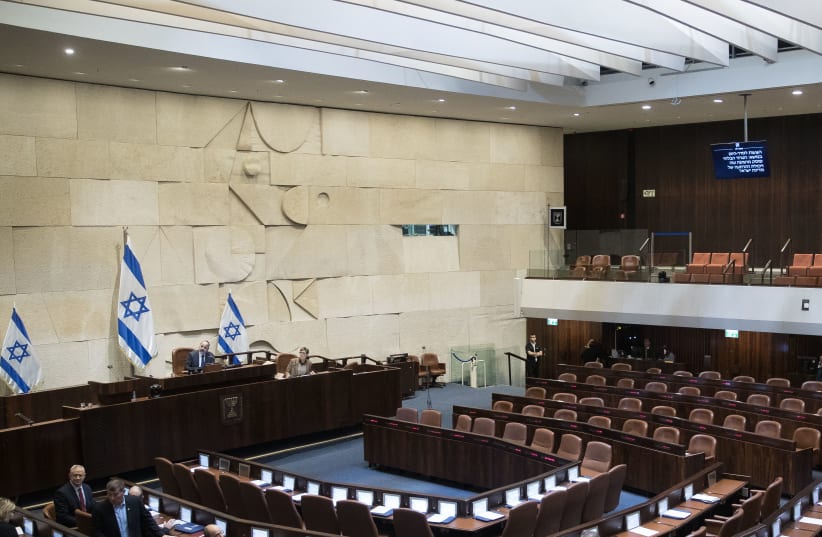This new government – assuming it reaches the stage of being sworn in and gaining the necessary Knesset approval – is a chance for a political reset. But more than that, it is a chance for a social reset. It is time for the public to say it has had enough of the divisions and determine that it will unite and refuse to give in to the acrimony and splits.
The politicians – the country’s leadership – should be setting the tone by cooling the rhetoric and trying to heal the wounds. Sadly, this isn’t happening across the spectrum.
The demonstrations outside the homes of Naftali Bennett and Ayelet Shaked, among others, have witnessed ugly name-calling verging on incitement. This must stop. From Left and Right, there needs to be recognition that while demonstrations and protests are a legitimate and even an essential part of democracy, incitement and hate speech are not.
This is where the next president, who will be chosen by MKs on Wednesday, can also play an important role. As outgoing President Reuven Rivlin has shown, this position offers the ability to act to unite above political divisions, to recognize that all citizens are worthy of respect and have a part to play in the fabric of society.
Both Isaac Herzog and Miriam Peretz, the two contenders for the job, have spoken clearly about their aims to unite all sectors of society, and this will be essential.
Israel has been through a particularly trying period. The country has been through four elections within two years – and the specter of a fifth still hovers in the background if the Bennett-Lapid government does not succeed in coming to fruition. The nonstop elections are a sign of division and a promoter of even more divisiveness.
Thankfully, due to the highly successful vaccination campaign, Israel has basically opened up and entered a post-corona phase. However, the splits from the pandemic period have not disappeared – particularly concerning the tensions with the ultra-Orthodox and Arab sectors in places where there was flagrant disregard of the regulations aimed at halting the spread of the deadly disease.
No sooner had we started to get back to a more normal routine than Hamas unleashed barrages of thousands of rockets on the country. And if that wasn’t enough, there were violent uprisings by Arab citizens in towns that had prided themselves on coexistence, such as Acre, Jaffa and Haifa, a deadly attack by an Arab mob on a Jew in Lod along with the firebombing of synagogues, and main roads blocked in and around many Arab communities, North and South.
Here we saw the failure of the Arab leadership, which, with the exception of MKs Esawi Frej (Meretz) and Mansour Abbas (Ra’am), not only failed to take a stand against the violence but in too many cases actually verbally stoked the flames.
Here, too, the general public must stand firm and say that no matter what the political outcome of the government creation process, we refuse to further the hatred among those destined to live together.
The welcome trend of including more haredim and Arabs in the workforce must continue, and we need, all of us, to learn how to share that space. Fortunately, during both the pandemic and the mini-war, we saw that islands of coexistence did continue to survive in places like hospitals, where both the staff and patients come from all sectors.
In addition, every effort must be made to unite with Jews in the Diaspora. The frightening rise in antisemitism being witnessed particularly around the events of Operation Guardian of the Walls can be tackled only by a united front.
There is room for differences of opinion; that is part of the beauty of democracy. There cannot be room for hate, division and incitement, which can bring only harm to us all.
It is time to move beyond knee-jerk reactions to labels such as Left and Right, religious and secular, Arab and Jew. We need to call out incitement when we see it, including on social media, where it thrives. We need to stop driving ever wider wedges between different sectors and find our strength in our diversity and solidarity.
